-
 +20 +1
+20 +1The 'great dying': rapid warming caused largest extinction event ever, report says
Rapid global warming caused the largest extinction event in the Earth’s history, which wiped out the vast majority of marine and terrestrial animals on the planet, scientists have found. The mass extinction, known as the “great dying”, occurred around 252m years ago and marked the end of the Permian geologic period. The study of sediments and fossilized creatures show the event was the single greatest calamity ever to befall life on Earth, eclipsing even the extinction of the dinosaurs 65m years ago.
-
 +16 +1
+16 +1Why the chicken is a symbol of our times
With around 23 billion chickens on the planet at any one time, the bird is a symbol of our times, say scientists.
-
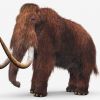 +33 +1
+33 +1Extinct mammoths could be given protected status in bid to save elephants
Extinct mammoths could be given protected status in bid to save elephants
-
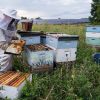 +14 +1
+14 +1Solar Farms Shine a Ray of Hope on Bees and Butterflies
The tidy rows of gleaming solar panels at Pine Gate Renewables facility in southwestern Oregon originally sat amid the squat grasses of a former cattle pasture. But in 2017 the company started sowing the 41-acre site with a colorful riot of native wildflowers. The shift was not merely aesthetic; similar projects at a growing number of solar farms around the country aim to help reverse the worrying declines in bees, butterflies and other key pollinating species observed in recent years.
-
 +16 +1
+16 +1Endangered UK plants brought back from brink by driving tractor over them
A crucial but threatened habitat has been revitalised following decades of decline after conservationists decided to run a five-tonne tractor over it. The unusual action was part of a wider effort to save the marsh clubmoss, an endangered plant that evolved 400 million years ago and forms a vital component of damp heathlands. The plant has declined by 85 per cent in recent decades as its habitat has been largely wiped out, leaving only a few sites in Dorset and Hampshire.
-
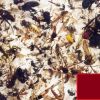 +11 +1
+11 +1Plummeting insect numbers ‘threaten collapse of nature’
The world’s insects are hurtling down the path to extinction, threatening a “catastrophic collapse of nature’s ecosystems”, according to the first global scientific review. More than 40% of insect species are declining and a third are endangered, the analysis found. The rate of extinction is eight times faster than that of mammals, birds and reptiles. The total mass of insects is falling by a precipitous 2.5% a year, according to the best data available, suggesting they could vanish within a century.
-
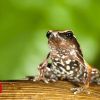 +3 +1
+3 +1New 'mystery' frog discovered in India
Indian researchers have discovered a new species of frog - in a roadside puddle. Sonali Garg, a PhD student at Delhi University, and her supervisor SD Biju found the new species in the Western Ghats, a biodiversity hotspot in southern India. The species belongs to a new Indian frog group or genus which the scientists have named Mysticellus.
-
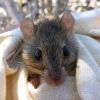 +13 +1
+13 +1Climate change is now sending animals extinct
Climate change is now officially sending animals extinct. The Bramble Cay melomys, a rodent found on a tiny island off Australia's far north coast and the only mammal native to the Great Barrier Reef, was this week added to a list of animals declared extinct by the Australian government. According to scientists, the mammal extinction is the first of its kind to be caused by human-induced climate change.
-
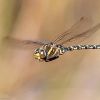 +15 +1
+15 +1Female dragonflies fake their own deaths to avoid males harassing them for sex
In order to avoid males of the species bothering them for sex, female dragonflies fake their own deaths, falling from the sky and lying motionless on the ground until the suitor goes away. A study by Rassim Khelifa, a zoologist from the University of Zurich is the first time scientists have seen odonates feign death as a tactic to avoid mating, and a rare instance of animals faking their own deaths for this purpose. Odonates is the order of carnivorous insects that includes dragonflies and damselflies.
-
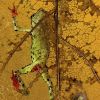 +14 +1
+14 +1Skin-eating fungus is mighty species slayer
A frog-killing fungus is responsible for the decline of more species than any other pathogen on record, a global analysis has found. The study, published on 28 March in Science1, reveals that chytrid fungi have caused the decline of at least 501 amphibian species worldwide from 1965 to 2015, including 90 that have become extinct. Other well-known pathogens such as the bat disease white-nose syndrome or West Nile virus, which kills birds, have affected just a fraction of the number of species. Chytrid fungi’s impact on biodiversity is comparable to those of the most destructive invasive species, such as cats and rodents, says the study.
-
 +23 +1
+23 +1A New Species of Ancient Human Was Uncovered in the DNA of Living Papuans
In 1864, our understanding of what it means to be human changed when Neanderthals were identified as a distinct species of hominin. At the time, it was immensely scandalous to presume Homo sapiens weren’t uniquely human; now it’s obvious that we are one of many. On Thursday, scientists report in Cell that it may be time to add another member to our list of ancient kin.
-
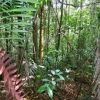 +4 +1
+4 +1Regrowing tropical forests recover fast in tree species richness, but slow in species composition
Tropical forests that regrow on abandoned agricultural land contain within a few decennia already most of the species of the original old-growth forest. Within 20 years the species richness is already 80% of that of old-growth forests. Their species composition, however, is totally different. Tree species are different, as well as their abundances, a team of around 80 researchers writes in Science Advances.
-
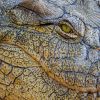 +33 +1
+33 +1Earth could take 10 million years to recover from mass extinction caused by humans
Scientists investigating the possible effects of climate change have predicted it would take 10 million years for the diversity of species on our planet to recover after a mass extinction event. The authors of the paper published in the journal Nature Ecology and Evolution wanted to calculate how long it takes for the Earth to return to former levels of biodiversity following a mass extinction event. “Humanity is undeniably causing elevated rates of biodiversity loss through climate change, habitat destruction, invasive species introduction, and so on,” the authors warned in their study.
-
 +13 +1
+13 +1How One Man Singlehandedly Repopulated a Rare Butterfly Species in His Backyard
Long gone from their home in San Francisco, the California pipevine swallowtail is back thanks to one man transforming his yard into a habitat for them. The iridescent blue wings of the California pipevine swallowtail are considered by collectors to be among the most magnificent in North America.
-
 +6 +1
+6 +1Scientists warn a million species at risk of extinction
One million animal and plant species are at imminent risk of extinction due to humankind’s relentless pursuit of economic growth, scientists said on Monday in a landmark report on the devastating impact of modern civilization on the natural world.
-
 +27 +1
+27 +1Civilization Is Accelerating Extinction and Altering the Natural World at a Pace ‘Unprecedented in Human History’
A dire United Nations report, based on thousands of scientific studies, paints an urgent picture of biodiversity loss and finds that climate change is amplifying the danger to humanity.
-
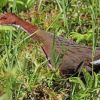 +24 +1
+24 +1An extinct bird species has evolved back into existence, study says
A previously extinct species of bird has re-evolved back into existence, according to a new study. The Aldabra rail first went extinct around 136,000 years ago. Now, it's reclaimed its home island. According to a study published Wednesday in the Zoological Journal of the Linnean Society, a peer-reviewed scientific journal, sediments from the Aldabra Atoll in the Indian Ocean show that the island has been completely submerged multiple times, wiping out all species inhabiting it.
-
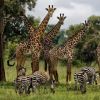 +16 +1
+16 +1Extinction looming over 1 million species of plants and animals, UN report says
Nature is in more trouble now than at any other time in human history, with extinction looming over one million species of plants and animals, scientists said Monday in the UN's first comprehensive report on biodiversity.
-
 +2 +1
+2 +1A Chain of Species Destruction at Yellowstone
Recreational fishing is a pastime in which people have come to expect the fish they want in the places they happen to want them. That is, they want their fish stocked and ready to catch, even in places those fish never originally lived. This practice can seem harmless, or even beneficial. But the introduction of one “beneficial” species in Yellowstone National Park suggests how rejiggering the natural world for human convenience can cause ecological disaster for almost everything else.
-
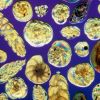 +35 +1
+35 +1Climate change profoundly alters plankton populations
New research using sediment cores suggests human-driven climate change is having a significant impact on the composition of the world’s marine plankton. A German study, published in the journal Nature, reveals that modern communities of foraminifera, a type of hard-shelled plankton, differ markedly from those from the pre-industrial era, which began just 170 years ago.
Submit a link
Start a discussion




















